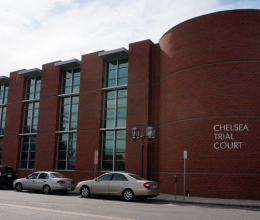
Adriana Lafaille joined the ACLU of Massachusetts as a legal fellow in October 2012 and became a staff attorney in November 2015. She has focused on immigration detention and immigrants' rights issues. The Massachusetts Bar Association selected her as the 2015 Access to Justice Rising Star, and Massachusetts Lawyers Weekly’s 2015 “Excellence in the Law” event recognized her as an “Up and Coming” lawyer.
Before joining the ACLU of Massachusetts, Adriana clerked for the Hon. Ralph D. Gants on the Supreme Judicial Court of Massachusetts, and for the Hon. Mark L. Wolf in the District of Massachusetts. Adriana graduated from Harvard Law School in 2010 and is a native speaker of Spanish and Portuguese.
Representative matters include:
- Submitted successful amicus brief in Kong v. United States, 62 F.4th 608 (1st Cir. 2023), in which the First Circuit held that a jurisdictional provision of the Immigration and Nationality Act did not bar a noncitizen’s suit seeking damages for his detention by ICE.
- Argued Bollat Vasquez v. Wolf, 460 F.Supp.3d 99 (D. Mass. 2020), in which the district court found plaintiffs were likely to succeed on the merits of their claim that the asylum seeker plaintiffs’ expulsion to Mexico at the Southern border under the Migrant Protection Protocols (MPP) was unlawful. The court ultimately ordered preliminary injunctive relief requiring members of six families to be removed from MPP and permitted to pursue their asylum claims from within the United States.
- Submitted successful amicus brief in Stamps v. Town of Framingham, 813 F.3d 27 (1st Cir. 2016), a case upholding the denial of qualified immunity for an officer who accidentally shot and killed Eurie Stamps during a SWAT team raid in his home.
- Argued Gordon v. Johnson, 300 F.R.D. 31 (D. Mass. 2013), a 2013 class action challenge to government's application of a “mandatory" immigration detention. Although the injunction was later vacated in light of intervening Supreme Court precedent, hundreds of detainees obtained their freedom under this ruling.







